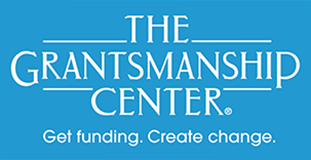Many nonprofit professionals wonder how to get grants for their organization. The process may at first seem like stepping into a confusing labyrinth full of twists and turns, but once you learn the basics developing a winning nonprofit grant proposal is really very logical.
A critical step in winning grant funding for your nonprofit is to target each proposal to the specific funder to which you are applying. Developing one proposal and sending it to a long list of funders won’t work. Each funder has its own interests and eligibility requirements, and most have their own application requirements.
Once you’ve targeted appropriate funders you’ll find that many will give you detailed instructions on how to apply for grants which they offer. However, many private and corporate foundations do not provide instructions on how to apply for their grants, they simply ask that you send them a proposal. When this happens, don’t panic!
Every thorough grant proposal contains eight categories of information. Because funders use different terms for the same concepts, understanding these basics will help you interpret funders’ application guidelines. These concepts will also provide you with an outline on how to write a nonprofit grant proposal when no guidance is provided.
1. Summary: Provide a brief overview of the entire proposal. Be sure to include the funds you’re requesting through the grant, and the resources that others will contribute.
2. Introduction to the Applicant: Describe your organization and provide proof that it’s a strong and credible applicant. Think of this as a resume for the job. Funders need confidence that the organization can deliver what you promise.
3. Description of the Problem: Provide a factual, well documented description of the situation your organization will address. Tell the funder what concerns you, why it matters, and why it’s happening. This information lays the foundation for the outcomes you’ll propose and the activities you’ll implement. Be sure it’s clear and strong.
4. Outcomes: Lay out specific, measurable outcomes (i.e., results, positive changes) you expect your work to produce. If you expect children to improve their reading skills, describe the children and specify how many will improve, by what degree, over what period of time.
5. Program Plan: Provide thorough details about the activities your organization will complete to achieve the expected outcomes. Who will do what? When and how will they do it? Why do you think these activities will produce the change you expect?
6. Evaluation Plan: Describe how you’ll assess your work. How will you track whether activities are rolling out as planned? How will you examine whether the activities are producing the expected outcomes?
7. Sustained Impact: Tell the funder how your organization’s work will continue to produce impact beyond the period of grant funding. While this may mean a plan to keep the entire program in place, that’s not always the case. All program elements may not be essential for continuing impact; or perhaps other community groups will take over part of the work.
8. Budget: A thorough and realistic budget that shows the dollars requested through the grant, resources that will be provided by the applicant organization, and resources that other partners will contribute.
Some funders require that you attach specific documents to your proposal, such as your organization’s 501(c)3 letter from the Internal Revenue Service, its current operating budget, and letters from partner organizations. Sometimes you’ll be asked for resumes and job descriptions of key staff members.
Think of this quick overview as starting place for learning how to get grants for your nonprofit. Before you dive into the process, spend more time learning. Read our book, Grantsmanship: Program Planning and Proposal Writing, for details on each step of developing a winning proposal. Take one of The Grantsmanship Center’s trainings. Volunteer to assist a grants professional at an organization you know and respect. Your investment of time in the learning process will pay off great dividends in grant awards!
We welcome you to link to these pages and to direct people to this information on our site.
Please contact us for permission if you'd like to use this copyrighted material in some other way: info@tgci.com.
We love to hear from you!
© Copyright 2017 The Grantmanship Center. All rights reserved.


